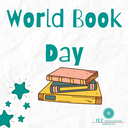
Presentation made to a PrimTEd seminar in February 2020 outlines the Zenlit Project working with Foundation phase teachers and the Expert Reading Teacher course materials released in 2019.

Presentation made to a PrimTEd seminar in February 2020 outlines the Zenlit Project working with Foundation phase teachers and the Expert Reading Teacher course materials released in 2019.

A qualitative piece on the different experiences of individuals during this lockdown, particularly with regards to education.

The response of NPOs in education to the COVID-19 pandemic to the concomitant uncertainty globally and the announced lockdown of 21 days in South Africa.


Governance structures that have enabled efficient crisis management across three distinct settings: Looking for ways to effectively govern the pandemic

Presentation made to a PrimTEd seminar in February 2020 outlines the six units being developed in 2020 which will be made available in Sesotho and IsiZulu.


Fake news impacting school age children (or targeting school age children): Impacts on behaviour, risk, anxiety, and how to ameliorate



In this paper we examine the effects of school closures amidst the pandemic, the effectiveness of remote learning and the possibility of remaking schooling in the South African context.

This is an evaluation study of the national change in education policy in England that saw a refocusing of teaching of reading around synthetic phonics. This was a low cost intervention that went through a pilot and then a national rollout. The study shows in particular how this change helped narrow the gap between disadvantaged and other learners.

Proceedings on this first national conference on family literacy in South Africa has some excellent papers that look into the near invisible world of family literacy practices and explore the developing communities of practice of educators engaged in family literacy projects.

The study looks at teacher instructional practice, learner performance outcomes, and intervention process design. It was designed to help develop an instructional toolkit for Grades R to 3 in the Eastern Cape context. The report concludes with an identification and of the binding constraints in the system and presents proposals for key interventions that could contribute to the transformation of foundation phase instructional practice on a wider system scale.

Post-Disaster Schooling - A study of how countries managed their education system during a disaster and the steps they took to re-establish normality

The article provides a useful examination of the distinction between science and pseudoscience, outlines the characteristics of good educational research and exposes that much educational thinking, including much special education, exhibits the core values of pseudoscience. It provides some interesting examples from Australia in the field of reading instruction.

This article evaluates South African research from two annotated bibliographies on reading in African languages at home language level (2004–2017) and South African research on teaching reading in English as a first additional language (2007–2018). It also aims to provide guidelines for addressing the weaknesses in this research. While this article is not intended to be a comprehensive guide, it would be useful to supervisors, postgraduate students and early career researchers currently undertaking, or planning to undertake, literacy research and to writing for publication.

Twelve well thought out standards with details on What teachers know and on What teachers can do for each standard

Essentially a curriculum framework for elementary school grades (up to Grade 4). Detailed and useful.

For useful standards for reading specialists and subject advisors



External evaluation of PrimTEd by a Southern Hemisphere team made up of Dr Mark Abrahams, Dena Lomofsky, Miskah Abrahams and Prof. Gert van der Westhuisen

The JET Researchers Bootcamp Research Thematic area 5 unlocks opportunity and mindset during the lockdown. They have compiled a list of teaching and learning materials currently available for teachers, learners, parents and caregivers in South Africa for use during and after the COVID-19 lockdown.

Researchers Bootcamp Theme 1 report is now available: A qualitative piece on the different experiences of individuals during this lockdown, particularly with regards to education.
A piece on freedom in education at this time in the history of our young democracy, drawing on the emerging insights from the research bootcamp currently underway on the impact of the COVID-19 pandemic on education in South Africa.
Freedom in education at this time in the history of our young democracy: Inequality remains pervasive in the South African education system. The COVID-19 pandemic has not only shown the fault lines, but is deepening them at an alarming rate, and in a manner that may take many more years to undo. In this contribution, based on the emerging findings from our Research Bootcamp, we talk to the need to provide basic rights, as set out in the Freedom Charter, such as health, safety and nutrition, while we cast the net wider to consider aspects of data privacy, online learning and governance.
![[Podcast: Episode 1] Cultural responses to COVID-19 and social distancing [Podcast: Episode 1] Cultural responses to COVID-19 and social distancing](https://admin.jet.org.za/news/news/podcast-cultural-responses-to-covid19-and-social-distancing/@@images/6b90d230-4bf0-4246-9f37-31191087ed2a.jpeg)
Given the socio-economic context, how effective is the South African education system in maintaining teaching and learning, and how can civil society help? 150 researchers under 12 themes, got together remotely to confront the barriers to learning in a pandemic.
A study by JET Education Services, led by Dr Nick Taylor has detailed how learners from affluent schools continued to receive core education during the lockdown while their poor counterparts faced the risk of being left behind.
![[Podcast: Episode 3] Schooling in a lockdown - family case studies [Podcast: Episode 3] Schooling in a lockdown - family case studies](https://admin.jet.org.za/news/news/podcast-schooling-in-a-lockdown-family-case-studies/@@images/653f93d0-7bd1-4903-b487-8b018f69b04d.jpeg)
Given the socio-economic context, how effective is the South African education system in maintaining teaching and learning, and how can civil society help? 150 researchers under 12 themes, got together remotely to confront the barriers to learning in a pandemic.
The Jala Peo (“Plant the Seed”) Initiative is a vehicle for the promotion of nutrition education and school food and nutrition gardens active in 67 schools across three Provinces: the Free State, Limpopo and the Western Cape. The Initiative seeks to make sure every school has a thriving school food and nutrition garden and that all learners in South Africa understand how to produce and consume nutritious food. To do this, the Initiative has created Forums – multistakeholder partnerships of government departments, private sector, academia and NGOs to increase and direct investment and resources towards more effective agriculture and nutrition education.
![[Podcast: Episode 6] Impact of Lockdown on education, a household level report [Podcast: Episode 6] Impact of Lockdown on education, a household level report](https://admin.jet.org.za/news/news/podcast-impact-of-lockdown-on-education-a-household-level-report/@@images/57328aa1-0a51-4c8e-8c50-ce07e40d9aa7.jpeg)
Given the socio-economic context, how effective is the South African education system in maintaining teaching and learning, and how can civil society help? 150 researchers under 12 themes, got together remotely to confront the barriers to learning in a pandemic.
![[Podcast: Episode 5] Fake news around COVID-19 and their effect on schooling [Podcast: Episode 5] Fake news around COVID-19 and their effect on schooling](https://admin.jet.org.za/news/news/podcast-fake-news-around-covid19-and-their-effect-on-schooling/@@images/344bb191-c071-434a-a721-d8464e37896e.jpeg)
Given the socio-economic context, how effective is the South African education system in maintaining teaching and learning, and how can civil society help? 150 researchers under 12 themes, got together remotely to confront the barriers to learning in a pandemic.
![[Podcast: Episode 4] Critical literacy for students, in the time of a pandemic [Podcast: Episode 4] Critical literacy for students, in the time of a pandemic](https://admin.jet.org.za/news/news/podcast-critical-literacy-for-students-in-the-time-of-a-pandemic/@@images/eaf92763-0997-4df3-ae9a-04176276128d.jpeg)
Given the socio-economic context, how effective is the South African education system in maintaining teaching and learning, and how can civil society help? 150 researchers under 12 themes, got together remotely to confront the barriers to learning in a pandemic.
![[Podcast: Episode 2] Creating new ways for teaching and learning to thrive [Podcast: Episode 2] Creating new ways for teaching and learning to thrive](https://admin.jet.org.za/news/news/podcast-creating-new-ways-for-teaching-and-learning-to-thrive/@@images/a7e48d75-609f-4d25-9aae-96683af4ad0a.jpeg)
Given the socio-economic context, how effective is the South African education system in maintaining teaching and learning, and how can civil society help? 150 researchers under 12 themes, got together remotely to confront the barriers to learning in a pandemic.
James Keevy joins the conversation on Radio 2000: #LunchwithTeachers Episode 9, The Royal Playground David Mashabela show
![[Podcast: Episode 7] Education in a time of crisis [Podcast: Episode 7] Education in a time of crisis](https://admin.jet.org.za/news/news/podcast-education-in-a-time-of-crisis/@@images/48dc88e1-07b1-4a4c-b2cf-9e3945b7ee58.jpeg)
Given the socio-economic context, how effective is the South African education system in maintaining teaching and learning, and how can civil society help? 150 researchers under 12 themes, got together remotely to confront the barriers to learning in a pandemic.
![[Podcast: Episode 8] Responses of Education NonProfits to COVID-19 [Podcast: Episode 8] Responses of Education NonProfits to COVID-19](https://admin.jet.org.za/news/news/podcast-responses-of-education-nonprofits-to-covid-19/@@images/3b9552d2-a9d7-44f9-a296-d31c83c79685.jpeg)
Given the socio-economic context, how effective is the South African education system in maintaining teaching and learning, and how can civil society help? 150 researchers under 12 themes, got together remotely to confront the barriers to learning in a pandemic.
How keen are you to get involved in an ambitious research project called #OpenupYourThinking?
As an educational research agency with a non-profit motive, JET Education Services, the UNESCO Regional Office for Southern Africa (ROSA) and partners from the Global Challenge Research Fund’s Transforming Education for Sustainable Futures Project (South African node), as well as the Open Society Foundations (OSF), are collaborating on a new instance of the successful researchers “bootcamp” that took place in South Africa in April and May 2020.
Researchers Bootcamp Theme 8 report is now available: An investigation on how higher education institutions are managing the risks and impact of COVID-19.
Researchers Bootcamp Theme 7 report is now available: The purpose of this project has been to identify and understand examples of the use of self-sovereign identity (SSI) in education internationally, and to identify instances in which data ownership and control have been successfully decentralised.
Join us for a live streaming of the Researchers Bootcamp Theme 7 research output: Putting the individual at the centre: The role of digital identity during the time of COVID-19
Join us for a live streaming of the Researchers Bootcamp Theme 10 research output: Post-Disaster Schooling - A study of how countries managed their education system during a disaster and the steps they took to re-establish normality

The study involves a review of literature on how education systems were managed during and after a disaster. Four cases were examined: natural disasters (tsunami and earthquake) in Indonesia and Haiti; civil conflicts in Rwanda, Sierra Leone and Libya and the Vuwani district in Limpopo, South Africa; a health pandemic (Ebola) in West Africa; and the COVID-19 education response globally and in South Africa. All four cases offer valuable insights and lessons for the education sector in South Africa when it comes to strategy, policy, planning and programming of responses for education continuity, preparation to exit the lockdown and for curriculum recovery.

Lessons on How Countries Manage Schooling During and After Disasters: A Study of Four Cases
Researchers Bootcamp Theme 10 report is now available: A Study of Four Cases